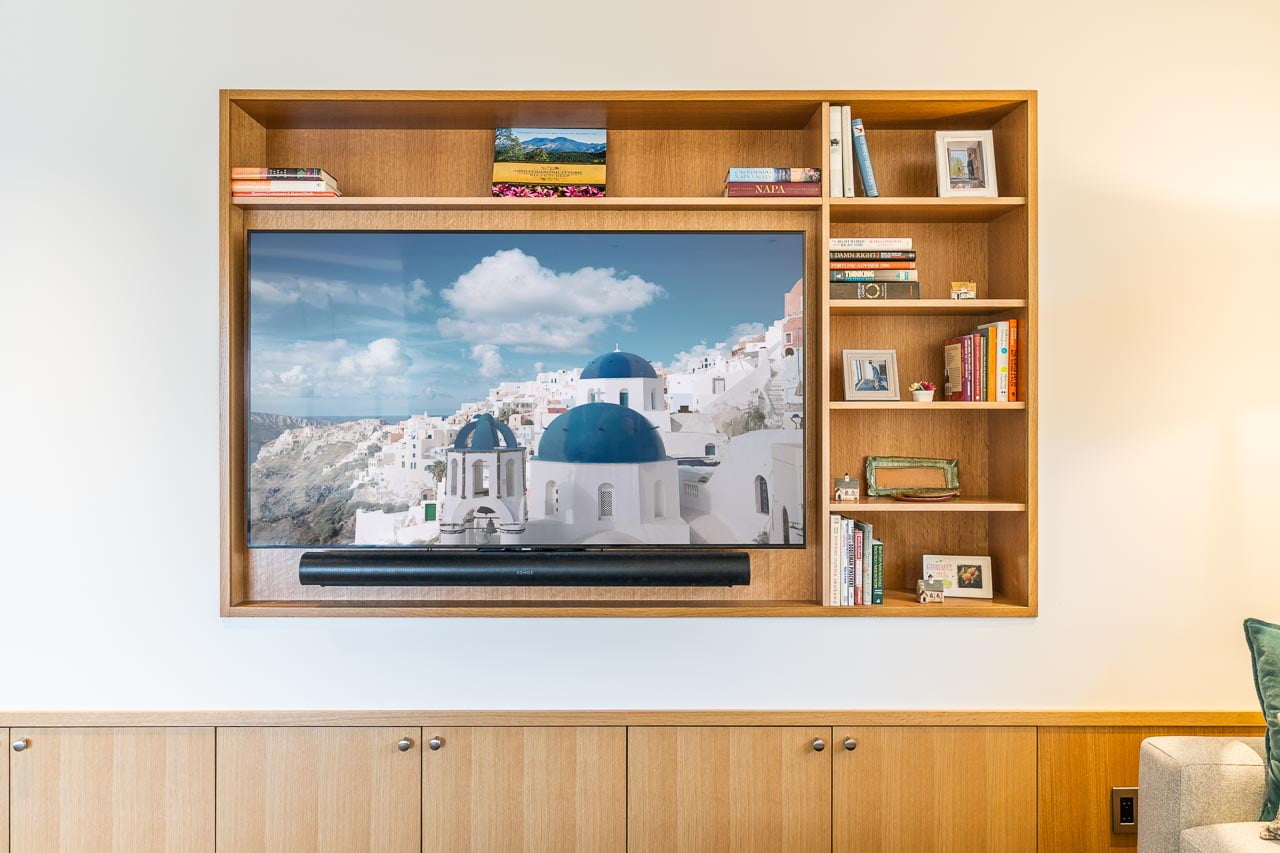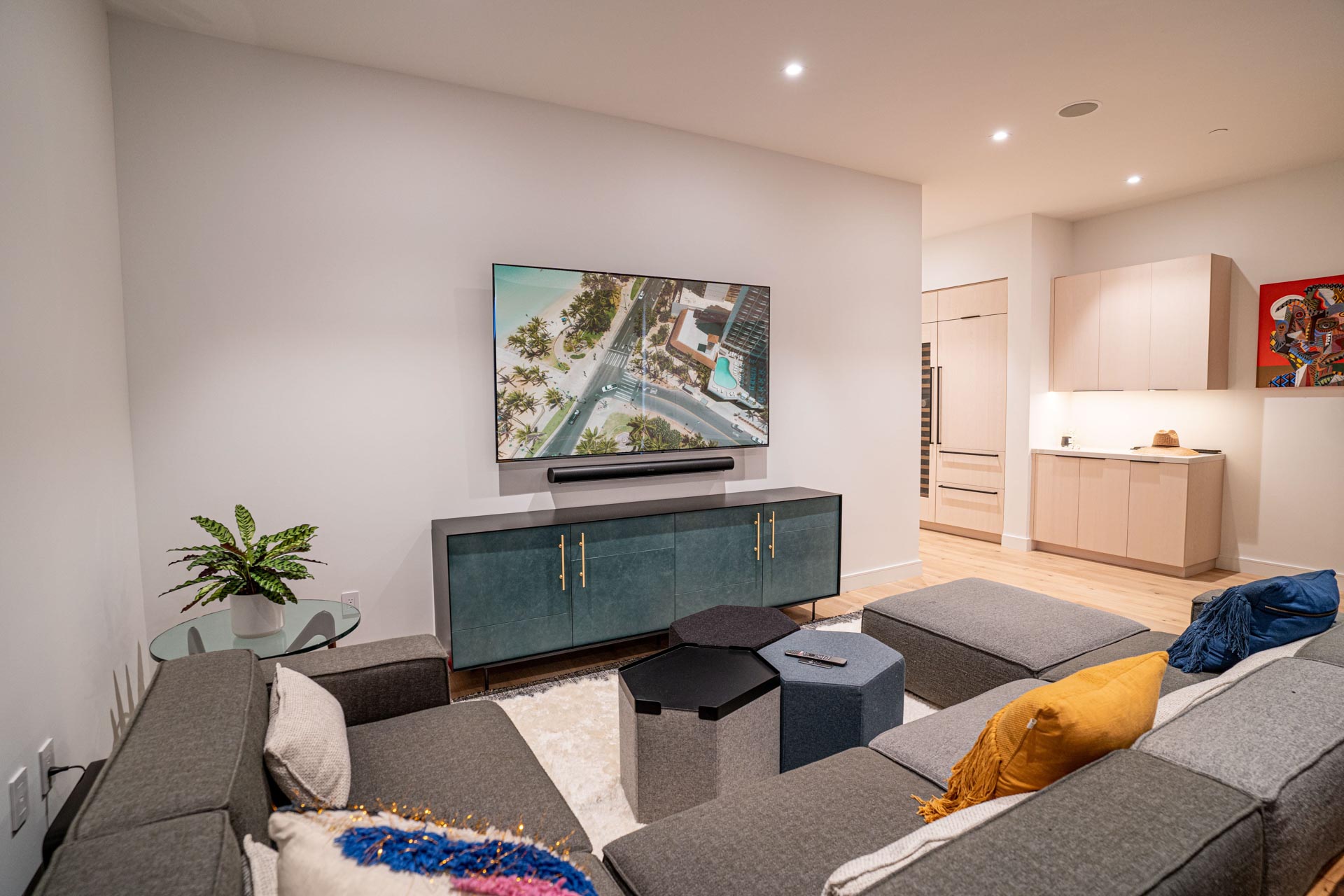There are so many TV technologies out right now that it’s easy to get caught up in marketing jumbo. Unfortunately, these technologies are important because they all fit different lifestyles. If you come down to SoundVision and let us know about your TV-watching habits, we can skip all the technical lingual for you and recommend some TVs for your home. However, if you’re interested in the difference between OLED, QD-OLED and QLED, we’re happy to walk you through it.
QLED

Evolution of LED
QLED is an evolution of LED. The basis is the same, with an LED light illuminating the back of the panel and creating colors on the screen from pixels with red, green and blue filters. However, the critical difference is that QLED uses energized quantum dots to generate colors, unlike the traditionally used liquid crystals.
Benefits of Quantum Dots
Now I know what you’re thinking: “Quantum dots and liquid crystals are foreign to me. What’s it matter?” Well, think of it like this. LED is like a crayon set – able to create great art when used correctly, but has limited color options and low vibrancy. QLED on the other hand, is like a professional artist’s palette – able to work with hundreds if not thousands of vivid colors with near limitless creative options.
Thanks to the quantum dots, QLED can make a wider variety of colors at a vividness otherwise impossible with traditional LED panels. Having more colors makes gradients look more natural, even skin tones! Meanwhile, vividness is one of the leading qualities that dictate a good picture.
OLED

The Best Picture Out There
OLED is famous for creating the best picture in the industry, but it has some drawbacks. Unlike traditional LED TVs with a backlight, OLED TVs have each pixel individually lit.
Benefits of OLED
Individual pixel illumination allows for the best contrast available on TVs. Imagine a shot of a starry night, where the stars are pure white, and the sky is otherwise black. An OLED TV can illuminate that star at full brightness and entirely turn off the pixels for the sky. A QLED TV would have to illuminate an entire portion of that sky, which can create a grey haze around the star. This is just the most obvious example. Strong contrast is the most important quality to creating a great picture.
OLED technology also offers other picture enhancements. Because every pixel must be individually illuminated, each pixel has to be calibrated individually. This means the panel displays a highly accurate picture traditionally reserved for the best QLED or LED TVs. Additionally, OLED allows for continued accuracy at all angles, something QLED panels commonly struggle with.
Drawbacks of OLED
That’s not to say OLED is without its flaws. OLED panels are generally dimmer than QLED. OLED stands for Organic Light-Emitting Diode, and they can’t shine as bright as a traditional QLED. Nowadays, they have good peak brightness (ex: like a star). However, when the entire image needs to be brighter, OLED is dimmer than QLED. That being said, they can be a risky choice in brighter rooms.
Although less common these days, OLED is also prone to something called burn-in. Burn-in is when a certain image has been displayed for so long, some parts of it remain partially visible as if it’s a see-through image on top of your content. It’s significantly less likely now that the technology has matured and there are great built-in precautions, but the risk is still there.
QD-OLED
Unsurprisingly, the QD in QD-OLED stands for Quantum Dot. QD-OLED is a Samsung technology on their newly released OLED line. With OLED, the Quantum dots bring richer color vividness and more colors than traditional OLED. However, the colors are so good on all OLEDs that the average viewer would likely not see a difference.
What’s Best For You?
So, if you’re feeling confused or want some expert guidance in picking the right TV for your home, reach out to us at SoundVision. We’ve got the know-how and passion to make your TV dreams come true. Together, we’ll find the perfect TV to transform your space into the ultimate entertainment hub for your lifestyle and design. Get in touch with us today by calling 415-456-7000 or contacting us online.

